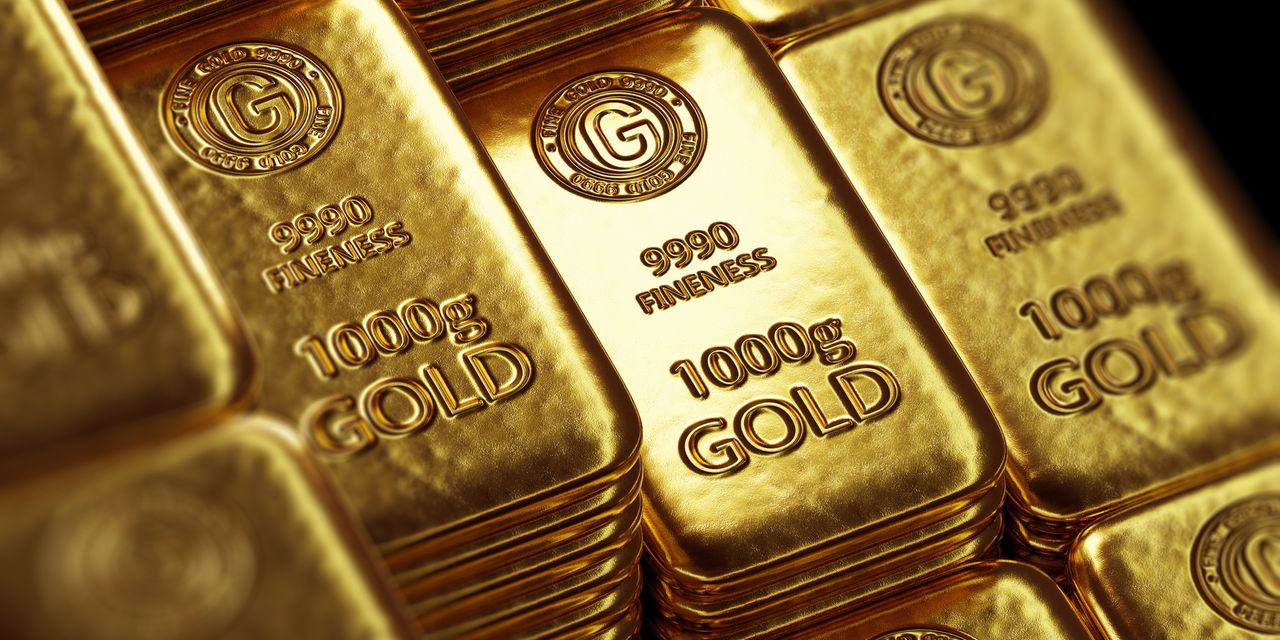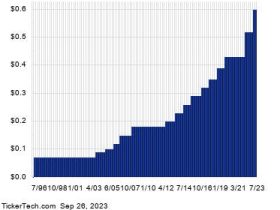Gold prices climbed back above $1,900 an ounce on Friday to settle at their highest in three weeks, as Israel ordered over a million people to evacuate Gaza, lifting safe-haven demand for the precious metal.
“The events in the Middle East have taken center stage, vastly overshadowing market concerns and discussions,” Stephen Innes, managing director at SPI Asset Management, told MarketWatch. “The conflict and its implications have captured the world’s attention and become the primary focus of media and public discourse, temporarily diverting attention from financial and economic matters.”
The Israeli military told more than 1 million Palestinians, almost half of the population, on Friday to evacuate northern Gaza, raising expectations that a ground invasion is imminent against the ruling Hamas militant group.
“If Israel moves into Gaza with their modern-day military might, when considering the presence of hostile actors in the region and the fundamental nature of the conflict being rooted in religious differences, we could be on the cusp of something significant,” said Innes.
Given that, “I think it is fear of war driving gold,” he said. “I don’t think traders wanted to be short oil or gold…over the weekend, just in case multiple Middle East powder kegs explode.”
Against that backdrop, the December gold contract
GCZ23,
GC00,
climbed by $58.50, or 3.1%, to settle at $1,941.50 an ounce on Comex, up 5.2% for the week.
That was the highest most-active contract settlement since Sept. 22, and biggest daily percentage gain since early December, according to Dow Jones Market Data.
“You know what they say in the gold market is to never let a good crisis go to waste,” said Innes. “Indeed, geopolitical risk is starting to take charge across a swath of cross-assets where gold and oil bulls are doing the early victory laps.”
Gold prices had already moved up in recent days, with Thursday’s decline marking the first in five trading sessions.
Gold futures traded as low as $1,823.50 on Oct. 6, the lowest intraday level since March, then traded mostly higher in the wake of last Saturday’s Hamas attack on Israel.
Gold has gained more than 4% since hitting a multimonth low earlier in October, buoyed in part by declining bond yields as “investors increased bets on the end of the Federal Reserve’s hiking cycle,” said Ricardo Evangelista, senior analyst at ActivTrades, in emailed commentary.
Meanwhile, Adrian Ash, director of research at BullionVault, told MarketWatch that any talk of “safe haven” flows into gold “misses the fact” that most bullion-backed exchange-traded funds have actually continued to shrink so far this week, rather than expand.
Users of BullionVault have been net sellers since the weekend too, albeit very marginally after more chose to take profits in September, he said.
“With the stock market also continuing to rise despite the worsening regional tensions, it seems investors — for now at least — are watching what happens to interest-rate expectations more than they’re watching the dreadful news from the Middle East,” said Ash.
Geopolitics and gold
Buying gold as an investment in the face of uncertainty driven by geopolitical issues, however, isn’t always the best idea.
Brien Lundin, editor of Gold Newsletter, said he’s “always recommended against buying gold based on geopolitical crisis” because that’s “almost always a losing game.”
Gold is a hedge against monetary issues, specifically the ongoing depreciation of currencies, he said. “There’s no rationale for buying it due to a specific geopolitical event, other than a bet that one will be able to sell it at a higher price to someone else. And this rarely works.”
On the other hand, in the current situation, there is a “chance that this is the event that stops the Fed rate hikes,” said Lundin. “For this gold rally to continue, we’ll need this geopolitical driver to force a change in Fed policy.”
“ “For this gold rally to continue, we’ll need this geopolitical driver to force a change in Fed policy.” ”
He said he didn’t expect the next catalyst for gold to be something obvious like the banking system or a recession, but “something out of left field.”
“The Hamas attack fits that bill perfectly,” said Lundin.
Read the full article here













Leave a Reply